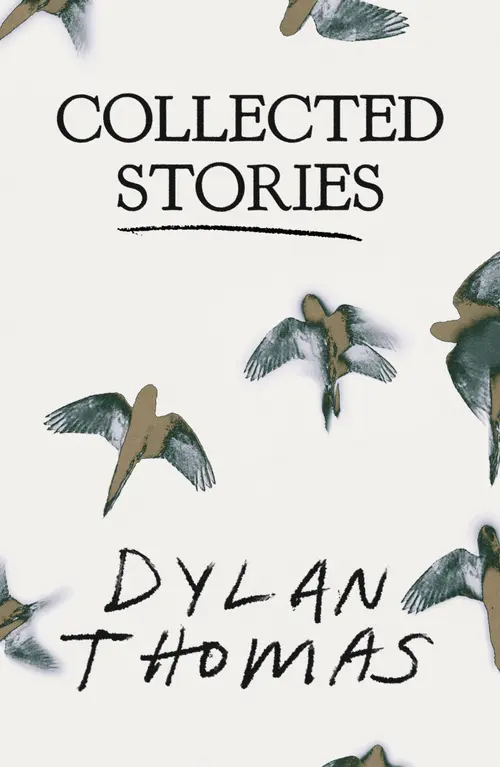
The old woman upstairs had been dying since Helen could remember. She had lain like a wax woman in her sheets since Helen was a child coming with her mother to bring fresh fruit and vegetables to the dying. And now Helen was a woman under her apron and print frock and her pale hair was bound in a bunch behind her head. Each morning she got up with the sun, lit the fire, let in the red-eyed cat. She made a pot of tea and, going up to the bedroom at the back of the cottage, bent over the old woman whose unseeing eyes were never closed. Each morning she looked into the hollows of the eyes and passed her hands over them. But the lids did not move, and she could not tell if the old woman breathed. ‘Eight o’clock, eight o’clock now,’ she said. And at once the eyes smiled. A ragged band came out from the sheets and stayed there until Helen took it in her padded hand and closed it round the cup. When the cup was empty Helen filled it, and when the pot was dry she pulled back the white sheets from the bed. There the old woman was, stretched out in her nightdress, and the colour of her flesh was grey as her hair. Helen tidied the sheets and attended to the old woman’s wants. Then she took the pot away.
Each morning she made breakfast for the boy who worked in the garden. She went to the back door, opened it, and saw him in the distance with his spade. ‘Half past eight now,’ she said. He was an ugly boy and his eyes were; redder than the cat’s, two crafty cuts in his head forever spying on the first shadows of her breast. She put his food in front of him. When he stood up he always said, ‘Is there anything you want me to do?’ She had never said, ‘Yes.’ The boy went back to dig potatoes out of the patch or to count the hens’ eggs, and if there were berries to be picked off the garden bushes she joined him before noon. Seeing the red currants pile up in the palm of her hand, she would think of the stain of the money under the old woman’s mattress. If there were hens to be killed she could cut their throats far more cleanly than the boy who let his knife stay in the wound and wiped the blood on the knife along his sleeve. She caught a hen and killed it, felt its warm blood, and saw it run headless up the path. Then she went in to wash her hands.
It was in the first weeks of spring that she made up her mind to kill the old woman upstairs. She was twenty years old. There was so much that she wanted. She wanted a man of her own and a black dress for Sundays and a hat with a flower. She had no money at all. On the days that the boy took the eggs and the vegetables to market she gave him sixpence that the old woman gave her, and the money the boy brought back in his handkerchief she put into the old woman’s hand. She worked for her food and shelter as the boy worked for his, though she slept in a room upstairs and he slept in a straw bed over the empty sheds.
On a market morning she walked into the garden so that the plan might be cooled in her head. It was a fine May day with no more than two clouds in the sky, two unshapely hands closing round the head of the sun. ‘Ifl could fly,’ she thought, ‘I could fly in at the open window and fix my teeth in her throat.’ But the cool wind blew the thought away. She knew that she was no common girl, for she had read books in the winter evenings when the boy was dreaming in the straw and the old woman was alone in the dark. She had read of a god who came down like money, of snakes with the voices of men, and of a man who stood on the top of a hill talking with a piece of fire.
At the end of the garden where the fence kept out the wild, green fields she came to a mound of earth. There she had buried the dog she had killed for catching and killing the hens. On a rough cross the date of the death was written backwards so that the dog had not died yet. ‘I could bury her here,’ said Helen to herself, ‘By the side of the grave, so that nobody could find her.’ And she paned her hands and reached the back door of the cottage before the two clouds got round the sun.
Inside there was a meal to be prepared for the old woman, potatoes to be mashed up in the tea. With the knife in her hand and the skins in her lap, she thought of the murder she was about to do. The knife made the only sound, the wind had dropped down, her heart was as quiet as though she had wrapped it up. Nothing moved in the cottage; her hand was dead on her lap; she could not think that smoke went up the chimney and out into the still sky. Her mind, alone in the world, was ticking away. Then, when all things were dead, a cock crew, and she remembered the boy who would soon be back from market. She had made up her mind to kill before he returned, but the grave must be dug and the hole filled up. Helen felt her hand die again in her lap. And in the middle of death she heard the boy’s hand lift the latch. He came into the kitchen, saw that she was cleaning the potatoes, and dropped his handkerchief on the table. Hearing the rattle of money, she looked up at him and smiled. He had never seen her smile before.
Soon she put his meal in front of him, and sat sideways by the fire. As he raised the knife to his mouth, he felt the full glance of her eyes on the sides of his eyes. ‘Have you taken up her dinner?’ he asked. She did not answer. When he had finished he stood up from the table and asked, ‘ls there anything you want me to do?’ as he had asked a thousand times. ‘Yes,’ said Helen.
She had never said ‘Yes’ to him before. He had never heard a woman speak as she did then. The first shadow of her breast had never been so dark. He stumbled across the kitchen to her and she lifted her hands to her shoulders. ‘What will you do for me?’ she said, and loosened the straps of her frock so that it fell about her and left her breast bare. She took his hand and placed it on her flesh. He stared at her nakedness, then said her name and caught hold of her. She held him close. ‘What will you do for me?’ She let her frock fall on the floor and tore the rest of her clothes away. ‘You will do what I want,’ she said as his hands dropped on her.
After a minute she struggled out of his arms and ran softly across the room. With her naked back to the door that led upstairs, she beckoned him and told him what he was to do. ‘You help me, we shall be rich,’ she said. He smiled and nodded. He tried to finger her again but she caught his fingers and opened the door and led him upstairs. ‘You stay here quiet,’ she said. In the old woman’s room she looked around her as if for the last time, at the cracked jug, the half-open window, the bed and the text on the wall. ‘One o’clock now,’ she said into the old woman’s ear, and the blind eyes smiled. Helen put her fingers round the old woman’s throat. ‘One o’clock now,’ she said, and with a sudden movement knocked the old woman’s head against the wall. It needed but three little knocks, and the head burst like an egg.
‘What have you done?’ cried the boy. Helen called for him to come in. He stared at the naked woman whocleaned her hands on the bed and at the blood that made a round, red stain on the wall, and screamed out in horror. ‘Be quiet,’ said Helen, but he screamed again at her quiet voice and scurried downstairs.
‘So Helen must fly,’ she said to herself. ‘Fly out of the old woman’s room.’ She opened the window wider and stepped out. ‘I am flying,’ she said.
But she was not flying.
__________________________________
“The True Story,” by Dylan Thomas, from The Collected Stories of Dylan Thomas, Copyright © 1939 by New Directions Publishing Corp. Reprinted by permission of New Directions Publishing Corp.


